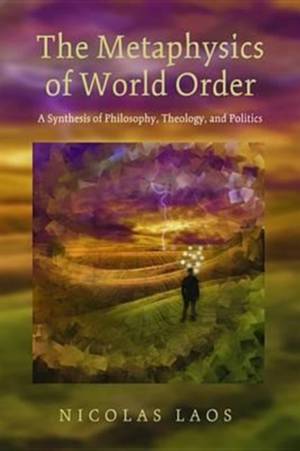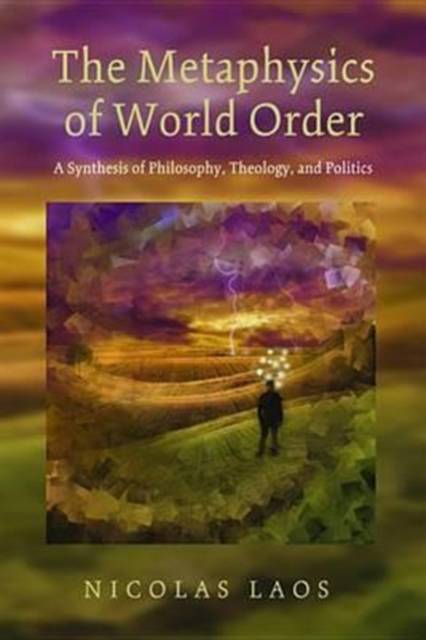
- Afhalen na 1 uur in een winkel met voorraad
- Gratis thuislevering in België vanaf € 30
- Ruim aanbod met 7 miljoen producten
- Afhalen na 1 uur in een winkel met voorraad
- Gratis thuislevering in België vanaf € 30
- Ruim aanbod met 7 miljoen producten
Zoeken
The Metaphysics of World Order
A Synthesis of Philosophy, Theology, and Politics
Nicolas Laos
Paperback | Engels
€ 44,95
+ 89 punten
Uitvoering
Omschrijving
In this book, Nicolas Laos studies the meaning of the terms "world" and "order," the moral dimensions of each world order model, and wider issues of meaning and interpretation generated by humanity's attempt to live in a meaningful world and to find the logos of the beings and things in the world. The aim of this book is to propose a unified theory of world order (i.e., a theory that combines philosophy, theology, and political theory). In this context, the author provides a thought-provoking (re)interpretation of classical philosophy (placing particular emphasis on Platonism), an in-depth inquiry into medieval philosophy and spirituality (placing particular emphasis on the cultural differences between the Greek East and the Latino-Frankish West), and an intellectually challenging review and evaluation of modern Western philosophy (including Descartes, Spinoza, Leibniz, Locke, Berkeley, Hume, Rousseau, Kant, Hegel, Kierkegaard, Husserl, and Heidegger) and of Nietzsche's and the postmodernists' revolt against modernity. He then elucidates the philosophical foundations and "pedigree" of each of the three basic political theories of modernity (i.e., Liberalism, Communism, and Fascism), and he studies the basic theoretical debates in International Relations, Geopolitics, and Noopolitics. Finally, Laos proposes a new, "fourth," political theory which he calls "metaphysical republicanism."
Specificaties
Betrokkenen
- Auteur(s):
- Uitgeverij:
Inhoud
- Aantal bladzijden:
- 244
- Taal:
- Engels
Eigenschappen
- Productcode (EAN):
- 9781498201018
- Verschijningsdatum:
- 19/01/2015
- Uitvoering:
- Paperback
- Formaat:
- Trade paperback (VS)
- Afmetingen:
- 152 mm x 229 mm
- Gewicht:
- 335 g

Alleen bij Standaard Boekhandel
+ 89 punten op je klantenkaart van Standaard Boekhandel
Beoordelingen
We publiceren alleen reviews die voldoen aan de voorwaarden voor reviews. Bekijk onze voorwaarden voor reviews.











